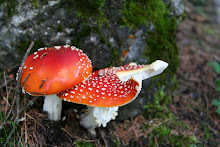I realized as we were playing Monopoly the other day - oh yes, we have graduated to big kid games. Hallelujah!!! Anyway, I realized as we played that our girls talk a little funny now. We've noticed here and there that differences exist from how they might talk at "home" - in the US.
For example: Rachel says "I need to go to the toilet." Not " the restroom or bathroom." Because in Europe, it's referred to as the toilet. If you ask for a restroom, you'd most likely receive a blank look or be directed to a chair. So you could sit down and rest. If you have to 'go,' you go find a toilet (or a water closet - WC signs are still everywhere). Makes sense.
But 3 years of British English teachers (UK and South Africa origin & they've each had 1 year with an American teacher) and friends from Italy, Germany, Netherlands, UK, etc... has shaped their speech in ways that slip out and make me giggle.
Rachel now says 'give it a go' quite a bit. Kendra does her 'maths' homework. They have 'revisions' of homework instead of reviews. When they play Monopoly (we are currently playing the National Parks Version), they say the names with proper accenture - Padre Island is spoken with a Latin accent, rolled 'r' and everything. They will be speaking right along in regular American English and then switch to a correct pronunciation for a specific word.
When they come across new words in written form, they use a European alphabet to pronounce them. We had some vanilla filled wafer cookies on our trip - they girls look at the bag and pronounce them as 'wah-fers' - half English/half German. Things are a 'pro-cess' not a 'prah-cess.'
And don't ask me about spelling. Most parents work on their children spelling either British English (colour, programme, humour, etc...) consistently or American English consistently (color, program, humor, etc...). The girls stick pretty close to American spelling - I probably flub that more than they do.
It will all work itself out as they continue to learn. I am amazed at the capacity of their brains to accept multiple input/languages and sort it all. I certainly have struggled with some of it myself - my brain is old. How they can learn spelling in German and English so well all at the same time?
In German, each letter of the alphabet has it's one, yes one!, sound (and certain combinations make a distinct sound ex. ei, ie, sch, tsch, ss) and every syllable is pronounced. There are no 'silent' letters. So I have found spelling to be quite easy in German. If I have trouble understanding someone's accent, I just have them spell the word and then I get it. There are so many exceptions in English. I didn't realize how difficult a language it was until I had to learn German. BUT - German grammar - HARDER. How to structure a sentence - Harder. Every noun - has a gender - masculine, feminine or neutral. Harder. See, a flower in English is 'the flower.' In German - I can't remember! Is it der, die or das 'Blumen?'
The girls. They get it. And they talk funny. :)
Tuesday, April 21, 2009
Subscribe to:
Post Comments (Atom)



2 comments:
How fun that your girls "talk funny"! We still speak some Singlish. That's a combo of English (mostly British English) and Singaporean words which can be Manderin, Malay or Tamil - an Indian dialect. And there are just the goofy pronunciations -- quesidillas is said phonoectically...
Cool that your girls have picked up the culture(s) around them!
It is fun Judy! We call the German/English combo - Dinglish (Deutch/Eng)! And there are a lot of English words that the Swiss spell phonetically - I never correct my neighbors spelling but it sure makes me laugh. Quietly. To myself.
Post a Comment